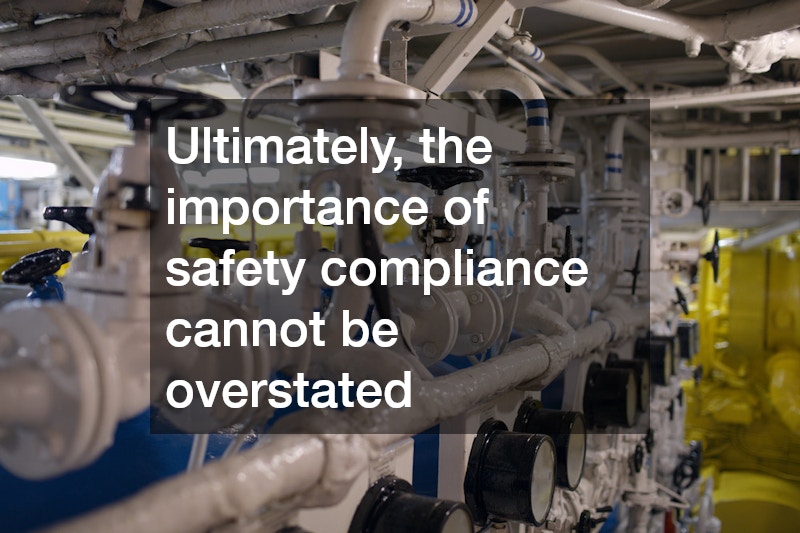There are multiple crucial reasons behind hiring professionals for commercial generator repairs, including the safety, efficiency, and longevity of your equipment. As businesses increasingly rely on commercial generators for backup power and operational continuity, the importance of professional repair services cannot be overstated. The complexities involved in the functioning of these machines underline the risks associated with non-expert interventions.
What Are Common Issues With Commercial Generators?
Understanding the typical problems that arise in commercial generators helps highlight why expertise is crucial for repairs. Common issues include fuel system malfunctions, electrical component failures, and coolant system leaks. Each of these problems can lead to severe operational disruptions if not addressed promptly by qualified professionals.
Fuel system malfunctions can result from various factors, such as clogged fuel filters or fuel contamination, leading to inadequate power generation. Electrical issues, including wiring problems or failing alternators, can also cripple the performance of a generator. Recognizing these common issues illustrates the necessity of engaging professionals with specialized knowledge and tools to diagnose and repair these faults effectively.
Moreover, understanding these issues allows business owners to prioritize regular maintenance schedules and develop better communication with their service providers. A proactive approach ensures that potential problems are caught early, minimizing downtime and extending the longevity of the generator. In summary, recognizing and addressing common issues is the first step in realizing the value of professional repair services for commercial generators.
What Are the Risks of DIY Repairs?
Exploring the dangers and potential hazards associated with attempting to fix generators without professional training reveals the complexities involved in generator maintenance and repair. Many aspiring DIY enthusiasts underestimate the risks, which can lead to accidents or ineffectual repairs. Generator systems often feature high voltages and potentially hazardous components, making any repairs without adequate guidance exceptionally dangerous.
Moreover, improper handling of these systems can result in injury or equipment damage, drastically increasing costs in the long run. Professional technicians are trained to deal with hazardous materials, ensuring that repairs are completed safely and according to industry best practices. This level of expertise is not easily matched by untrained individuals, further underscoring the wisdom of prioritizing professionally managed repairs.
In addition to safety risks, DIY repairs can lead to voided warranties or non-compliance with safety regulations. Any unapproved or amateur interventions may render warranties null and void, causing financial loss during crucial times. This combination of risk, potential injury, and financial loss firmly positions professional repairs as the only rational option for maintaining commercial generators effectively.
How Do Professional Repairs Ensure Safety Compliance?
Discussing the importance of adhering to safety standards and regulations through professional repairs further emphasizes their value in generator maintenance. Professionals are well-acquainted with local and national safety codes, ensuring that any repairs made bring the equipment back to compliance with regulatory standards. This compliance is vital for operational safety and mission continuity, especially in industries that depend heavily on reliable power sources.
Moreover, safety inspections conducted by trained professionals not only assure compliance with existing laws but also identify other potential risks that may not be immediately evident. These include structural issues, corrosion, or wear and tear on essential components. By addressing these issues proactively, businesses can mitigate the likelihood of significant failures and subsequent hazards.
Ultimately, the importance of safety compliance cannot be overstated. Professional repairs represent a conscious decision to prioritize not only the longevity of your generator but also the safety of personnel and the overall operational environment. By ensuring that all repairs comply with safety standards, businesses protect their investments and cultivate a safer workplace for everyone involved.
How Can Professionals Extend the Lifespan of Generators?
Examining how regular professional maintenance and timely repairs can enhance the durability of commercial generators spotlights the critical role professionals play in maintenance. Regular check-ups and routine maintenance can prevent minor issues from escalating into major problems, thereby extending the generator’s lifespan significantly. Professional technicians have the experience and insight to conduct thorough evaluations of the equipment and recommend effective interventions before a failure occurs.
Moreover, the documentation maintained by professionals during each service interaction contributes to a historical account of the generator’s performance, making it easier to spot long-term trends and potential issues. This disciplined approach enables businesses to strategize better for future repairs and replacements, ultimately prolonging the operational readiness of the equipment.
In conclusion, employing professionals to maintain commercial generators is not merely a matter of convenience; it is a responsible investment in the longevity and reliability of essential power systems. The expertise that professionals bring can lead to enhanced performance, lower total cost of ownership, and greater peace of mind for business owners. By prioritizing professional maintenance, businesses secure the future operational capacity that generators provide.
Utilizing professionals for commercial generator repairs is an investment in safety, compliance, and the longevity of your equipment. It is essential to prioritize quality over cost to ensure reliability in critical power systems. The complexities inherent in generator repairs require expertise that can only be provided by trained professionals, helping to safeguard investments and ensure operational continuity. Ultimately, businesses that choose to go the professional route do so not just for immediate fixes but for building a future that is resilient and secure.



